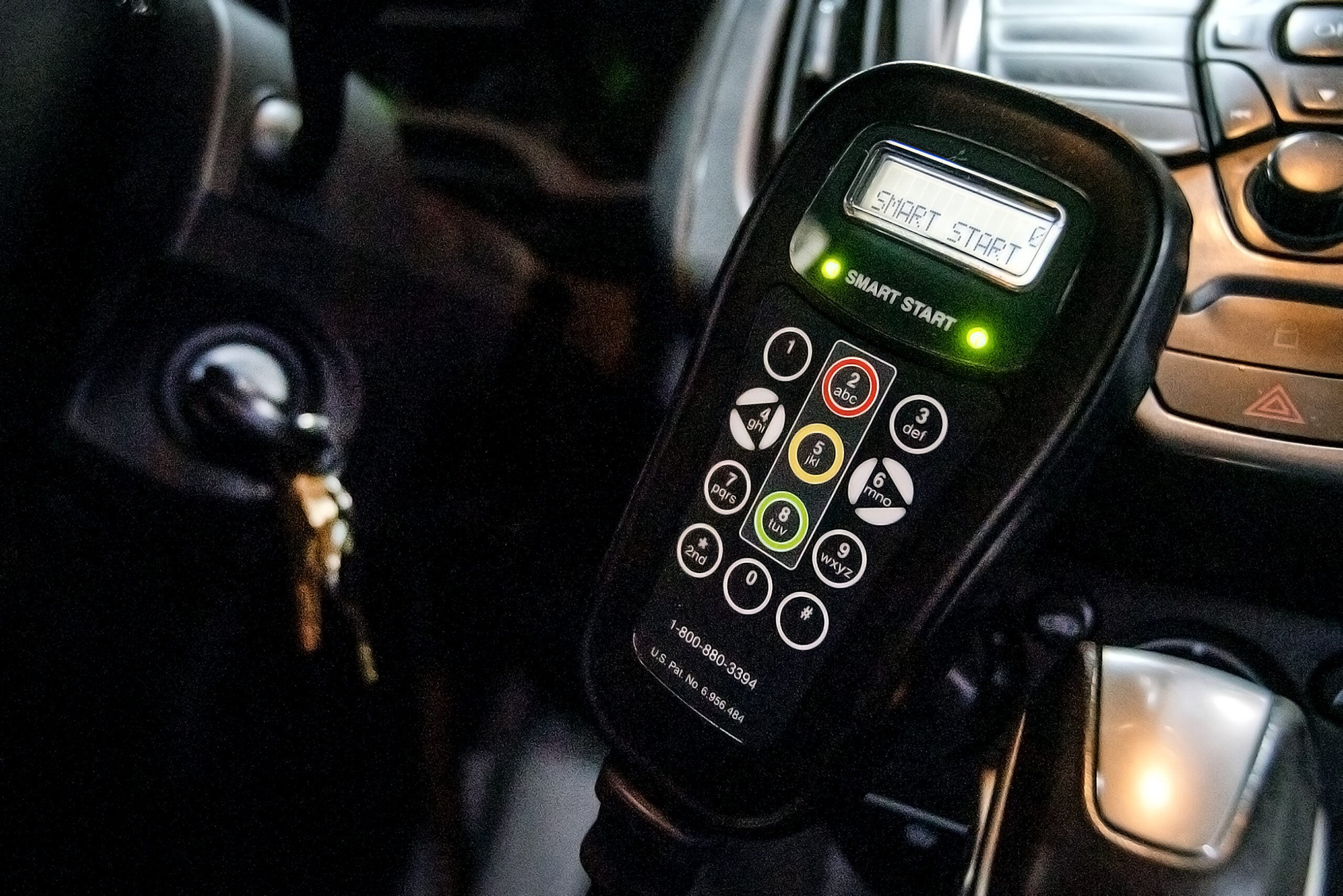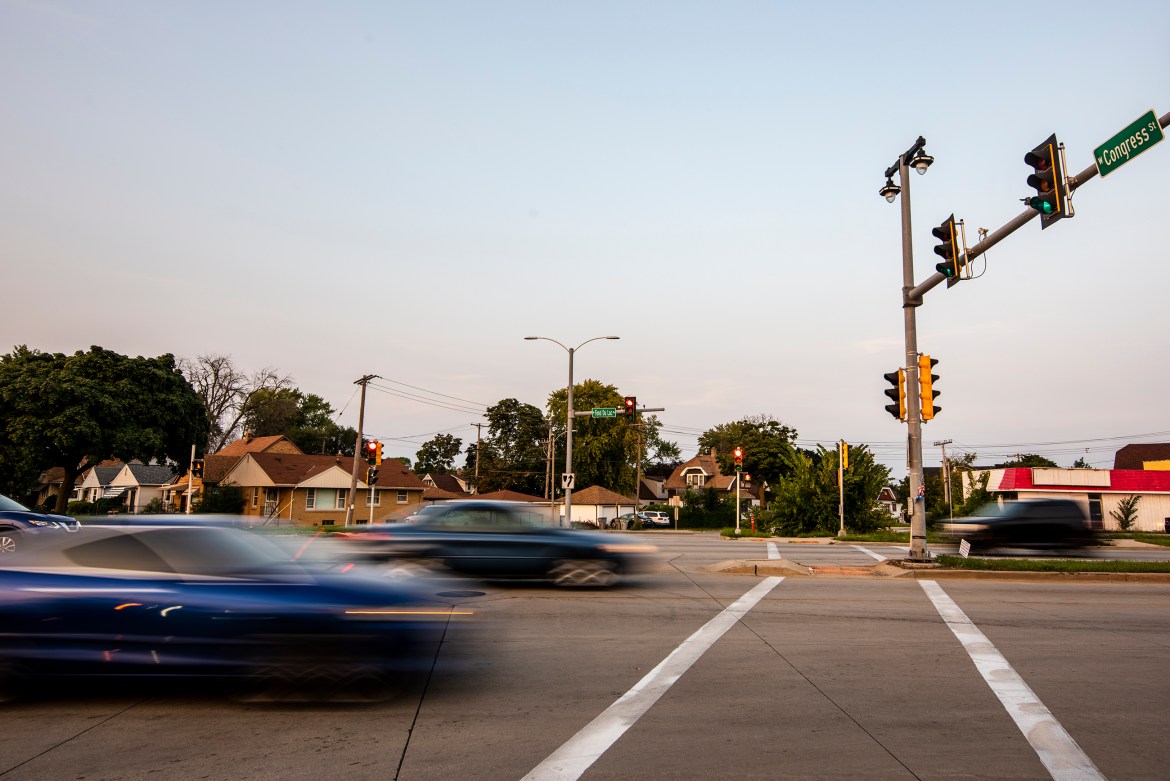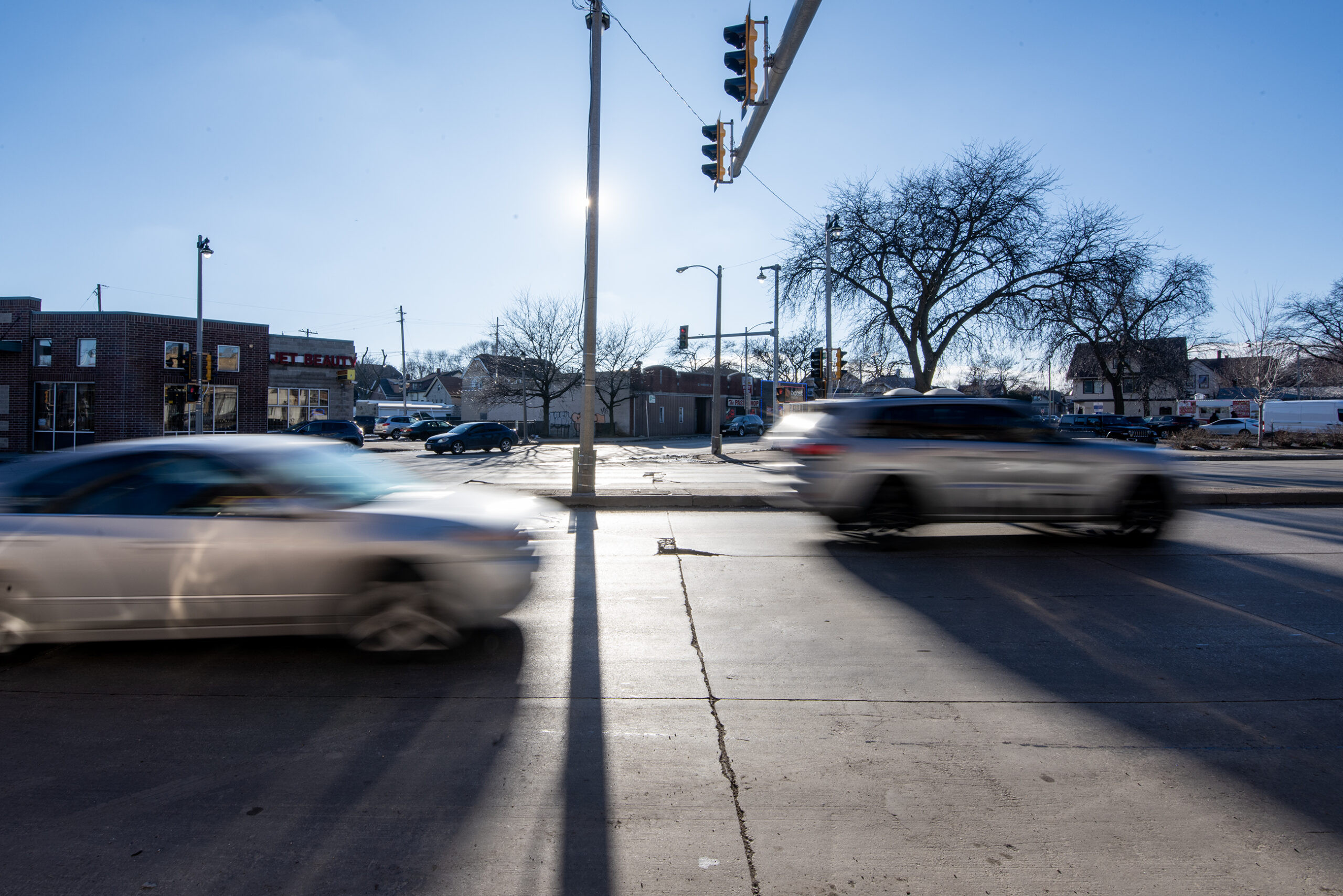A Wisconsin bill would require an ignition interlock device to be placed in the vehicle of all drunken driving offenders in the state.
That device requires a driver to pass a breath alcohol test before their vehicle starts. The legislation’s sponsor, Sen. Chris Larson, D-Milwaukee, said it’s aimed at changing behavior for what he called a “toxic culture” of drinking and driving that exists across the state.
“It’s time that we do more to curb the culture of drinking and driving in Wisconsin, while mitigating fatalities, injuries and property loss caused by drunk drivers,” Larson said during a press conference in Milwaukee Thursday.
News with a little more humanity
WPR’s “Wisconsin Today” newsletter keeps you connected to the state you love without feeling overwhelmed. No paywall. No agenda. No corporate filter.

Current state law requires the device for people with two or more charges for operating while intoxicated, or OWI. It’s also mandatory for first-time offenders with a blood alcohol content above 0.15, according to an analysis from the Legislative Reference Bureau. The bill expands the ignition interlock requirement to all OWI offenses that involve the use of alcohol.
This isn’t the first time Larson has introduced a similar version of the bill. He’s introduced the measure every legislative session that he’s been in office since 2011 — a total of seven times.
Larson said the measure has received some bipartisan support in the past, but with the Republican-controlled state Legislature, the bill has only gotten one hearing in the past 13 years.
“I would hope that as there’s more pressure, that people realize, ‘Hey, this is something that we can change,’” Larson said after the press conference.
Larson said he’s open to discussion on amendments to the bill to help move it along. Rep. Deb Andraca, D-Whitefish Bay, is also a co-sponsor of the bill.
“We want to get something passed, we would like to see this happen,” Larson said.
The device would be in the vehicle for one year under Larson’s measure. The driver would also need to blow under a .02 during the breath alcohol test.
Erin Payton, the regional executive director for Mothers Against Drunk Driving, also spoke in favor of the bill Thursday. Payton said since 2019, drunken driving deaths have increased 31 percent across the nation.
“We are in a roadway safety crisis,” Payton said.
In Wisconsin, over 7,500 crashes involved impaired drivers in 2022, according to the Wisconsin Department of Transportation. Those crashes led to 184 deaths and 3,556 injuries. In 2022, nearly 23,000 individuals were convicted of an OWI offense in Wisconsin.
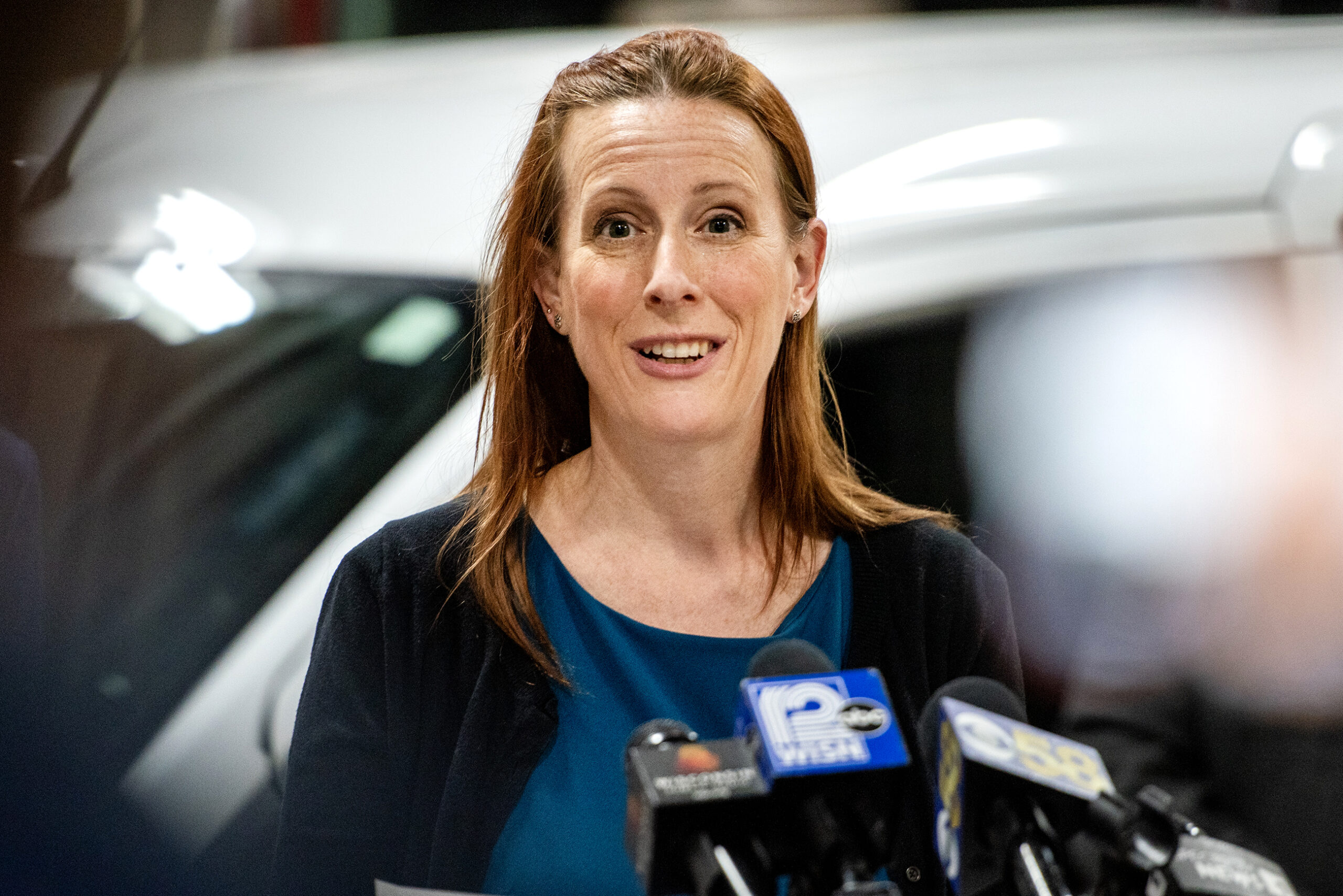
Payton said 35 states have laws already on the books similar to the bill introduced by Larson.
“That is most states, why not Wisconsin?” she said.
From 2006 to 2022, the use of the ignition interlock devices have prevented over 410,000 drunken driving attempts in Wisconsin, according to data collected by Mothers Against Drunk Driving. The U.S. Centers for Disease Control and Prevention also found the devices reduce repeat drunken driving by 67 percent.
“It will help change behavior, it will help prevent more needless injury, it will help save lives,” Payton said. “It is time for lawmakers to help their constituents and finally pass this legislation and join the majority of the country in addressing the entire drunk driving problem.”
A spokesperson for Assembly Speaker Robin Vos, R-Rochester, did not respond to a request for comment on the proposal. A representative from the Tavern League of Wisconsin also did not respond.
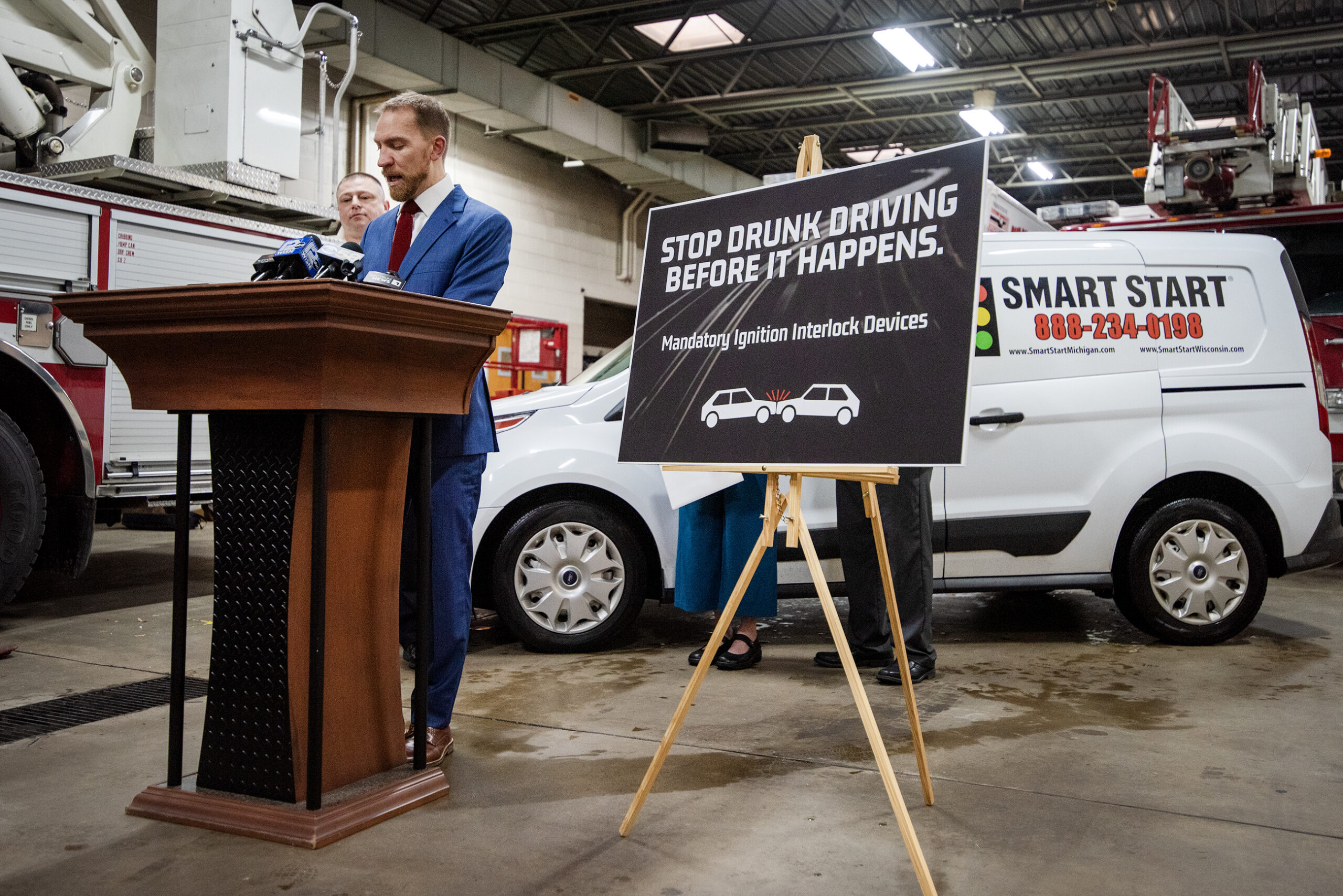
A representative from Smart Start Wisconsin said the interlock ignition devices are hooked up to the vehicle’s ignition system, which stops the engine’s ignition from starting anytime a sample is not provided. When the ignition is turned on, the device says “blow” on the screen. The driver then has to blow into the device and a breath alcohol test is started.
Along with the device, there’s also a camera which has a full view of the vehicle so it can capture anyone who tests other than the driver. That can help get around other people blowing into the device.
Milwaukee Fire Assistant Chief Schuyler Belott said drunken driving crashes can put a strain on the fire department’s resources.
“You can imagine the frustration from our firefighters when we see somebody operating that vehicle and it doesn’t just cause harm to themselves, but the innocent bystanders driving down the street,” Belott said during the press conference.
According to the National Highway Traffic Safety Administration, 13,384 people were killed in drunken driving crashes in 2021. The agency also estimated deaths, injuries and property damage amounted to around $280 billion in lost wages, medical costs and more.
It is illegal in Wisconsin for a driver over the age of 21 to operate a motor vehicle:
- With a BAC of 0.08 or greater;
- While under the influence of an intoxicant;
- With a detectable amount of a restricted controlled substance in his or her blood;
- While under the influence of a controlled substance or any other drug.
Drivers with three or more OWI convictions cannot operate a motor vehicle if their blood alcohol content is greater than 0.02.
Drivers under 21 years old are required by law to maintain absolute sobriety and, for them, driving with any amount of alcohol in their system is illegal.
Wisconsin Public Radio, © Copyright 2026, Board of Regents of the University of Wisconsin System and Wisconsin Educational Communications Board.

